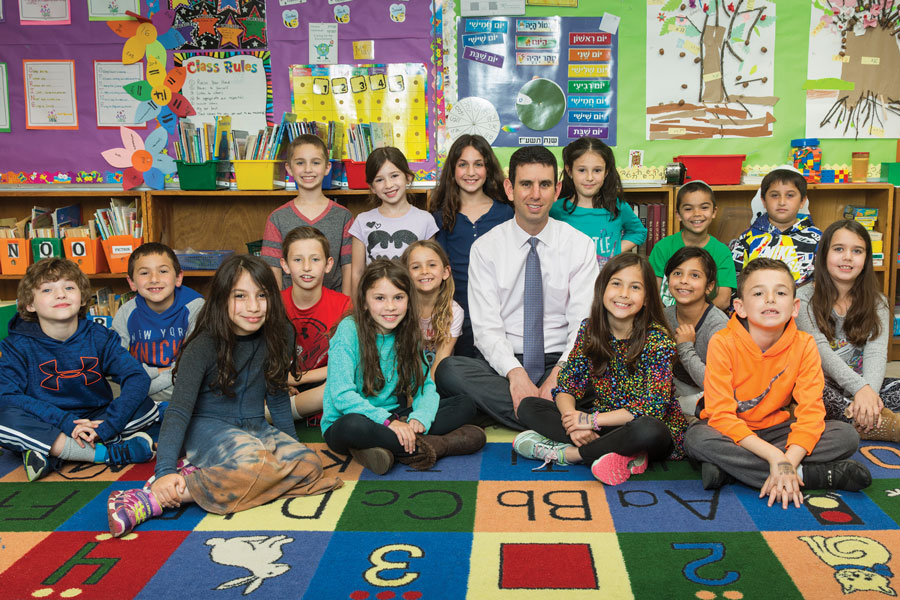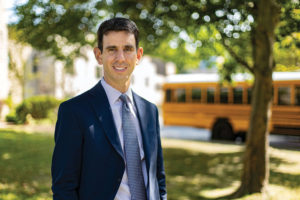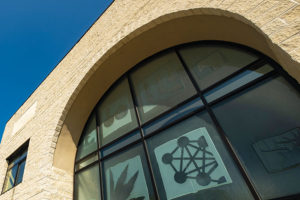The 2016-2017 school year will be remembered as one in which national and international discourse focused on competing visions for how best to improve the world. As an educational institution that has been driven for 51 years by the value of tikkun olam, this environment motivated us to consider important questions: How can we ensure that our students will take an interest in the world around them, without telling them what to think? How can we inspire students and alumni to take action to repair the world, without simply prescribing what this action ought to be?
My colleagues and I recently received an email that reaffirmed a core principle of our educational program: that enduring values — those that will transform the world in an immediate, positive, and abiding way — are most effectively instilled not merely through didactic instruction, but through memorable, lived experience.
The note was from a Schechter Westchester alumna, studying in her first year at a major university. She was writing in the days following several widely-publicized acts of anti-Semitism, including bomb threats and the desecration of Jewish cemeteries. She reached out, unsolicited, to tell us that she had been deeply affected by the defacement of headstones at a particular cemetery near her campus, and that she had volunteered through the campus Hillel to clean up, identify stones, and help families locate the graves of their loved ones.
This commitment to honoring the dignity of the deceased, one of the most powerful mitzvot in our tradition, was, of course, inspiring. What induced even more pride in our faculty, however, was our alumna’s statement that her sense of obligation was motivated by our school’s relentless commitment to “take hardships faced by our community and turn them into lessons.” Reflecting on her ninth- and twelfth-grade trips to aid the Hebrew Free Burial Association, she noted that on two separate occasions, the school “found it important enough to take us out of school for the day to help clean up a Jewish cemetery … to learn the value of community service, the respect deserved by those in our community who have passed, and the importance of maintaining a holy space for them and their grieving families.”
She then went on to recall the time that her class had spent in Poland as part of our eight-week, capstone Lev v’Nefesh senior experience. The trip is intended to help students understand the vibrant Jewish life that existed in Poland for eight centuries, experience firsthand the horrors of the Shoah, and bear witness to the small but inspiring renaissance of Jewish commitment that is now taking place there. She remembered our visits to pre-Holocaust Jewish cemeteries in Krakow and Warsaw, and the way in which her guides “showed the violence and the hatred used to break the headstones and to take away the names of those that were buried there so that they could not be remembered.” She then stated, in a line that evoked tears from some readers, that “it is because of what our school taught me through showing me both the destruction and the restoration possible in these holy places that I knew it was my duty as a member of the larger Jewish community to volunteer in any way I can.”
To be sure, the world of the future will be shaped by leaders with expertise in the traditional classroom and laboratory disciplines: humanities, sciences, arts, and engineering. Schechter Westchester’s students and graduates are excelling in these areas more than ever due to innovative programs that we have recently instituted in technology, entrepreneurship, literature, studio art, and Judaic studies. Perhaps even more important than content expertise, though, is the intuition to improve society and rectify wrongs — to take action when passivity is an available option. As the Mishnah teaches us (Avot 2:6), in a place in which there are few people willing to step up to do what is right, one must strive to be such a person.
Such intuition can indeed be inculcated in young people, and doing so is a crucial element of Schechter Westchester’s program. Critical thinking and analysis are the central skills of the 21st century, but these skills in and of themselves are often insufficient. Through our experiential tikkun olam programming, we are conditioning students to utilize these skills to identify a need and respond to it out of passion, instinct, a sense of justice, and an awareness of history.
Our ultimate mission is not explicitly to tell students what to think or how to act, but rather to instill the values that will inspire them to navigate an increasingly complex world with confidence and a moral imperative to make it a better place. Every once in a while, an email brings with it an affirming reminder of the power that our programming — both inside and outside the classroom — has to shape young lives and bring about success in this area of sacred responsibility.


